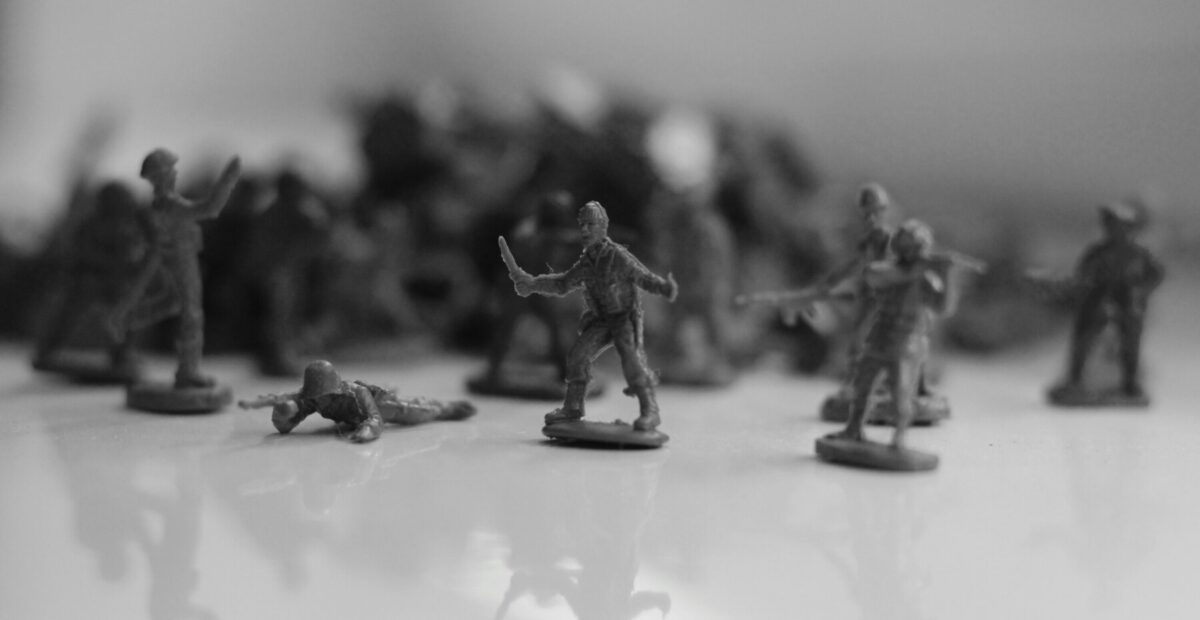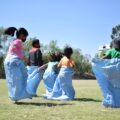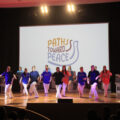
Workshop
“I was a child soldier. Today I work for peace”

Arthur was a child soldier, “enrolled” against his will along with other of his peers. Today he is a creator of peace, and he talks about it…
We will call him Arthur: no one will know whether it may or may not be his real name, but what is real here is his story, made up of violence, horror and of a rebirth in the sign of peace. One can be born in a war-torn country and become a creator of peace.
It all starts in the 1990s when his country, in the heart of the African continent, experiences a civil war due to the conquest of the diamond mine. It is said that the first victim of a war is the truth, but then, soon after following are the children, the ones who need to be cured, who need affection, hugs, and who are instead forced into a disgraceful war, to take weapons in hand and become, despite themselves, assassins. Numbers estimate that there were about 5000 children captured by rebels in those years to enforce the army and to take over the power.
“In those years many groups of rebels were born to fight against the army of the government” – narrates Arthur – “One day a group of armed men arrived in my village, they entered my home, and they took me with them, to make me join the army of the “children soldiers”.
That day, Arthur finds himself together with many other children like him. They leave and are forced to walk the whole night to reach their base. During the journey, one of these children who was tired asks to rest. One of the rebels looks at him and tells him: “OK, you remain here and rest” and without hesitation shoots him.
Arthur is only six years old when he is captured and starts to learn to live with the rebels who rob and burn villages, massacre the villagers by cutting off the hands of the adults and children so that they do not have their digital fingerprints to vote. “We passed from children afraid of gunshots to being the ones to shoot.”
Many children are in fact recruited, without awareness, known to be the best for several reasons: they do not understand the seriousness of the situation, they are small, fast, and able to infiltrate into sewage drains, cracks and mimic themselves when needed. Behind a promise or a threat, they are faithful. For five years, even Arthur lives in this situation where the children are also drugged, which forces them to do these atrocities.
“During our journeys, the women of the surrounding villages were forced to bring us food. One day, among those women, I recognized my mother who for years I thought was dead. We were forced to act indifferently, to not rejoice, to not recognize each other to protect each other, and with a strategy, I managed to escape with her, to return to the city and search for help from the government’s army, who helped us till the end of the war.”
With the end of the atrocities, to reach real peace is still an existing problem, the desire of revenge against the rebels is still high.
Yet in this case, the children are the protagonists of change; Arthur narrates the impression he had one day when the president of the country asked a girl whose hands were cut: “If you saw the person who cut your hands, what would you do?” The girl replied: “I have to forgive the rebels because if we do not forgive them, the war will never end.”
These words are shared with the whole country: “Maybe it is thanks to the people like this girl that the war in our country has ended” – continues Arthur, who soon after starts going to school, finally, and there he learns about the Saverian missionaries who share with him a different way of living, where fraternity is at the center. “Do not think it was easy or immediate, as the wounds were there and are still there, but with the example of that girl I tried living like those missionaries, trying to do to others what I would like done to myself, and I felt different, changed inside.”
It is a change that continues till today and that brought Arthur to study in Italy and to share life with people from various parts of the world: “In the midst of many cultures, I tried to embrace the diversities with my whole heart. I understood that there is another way of living, without fear.”
It became natural for Arthur to work in the field of global citizenship and to follow, from a distance, some projects for schools in a few African countries, in the field of the project Living Peace International, Arthur is an ambassador for peace with a dream in his heart: “I would like to return to my country and work with my people, and especially with the children and youth and form them to live in fraternity with all people.”






